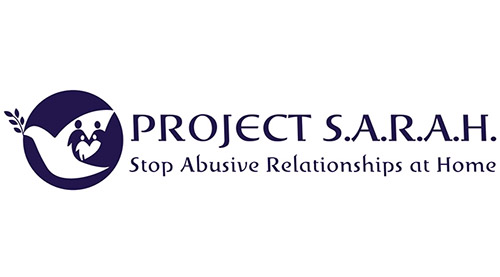
Worrying about our loved ones’ health, keeping up with our children’s Zoom classes and juggling meal schedules for a bustling home are just some of the issues with which we find ourselves dealing in greater intensity during this period. As we learn to navigate this new reality, the likes of which the world has not seen for over a century, you might be asking: How realistic is it to expect our homes to be peaceful, to maintain positive connections, while maintaining our sanity in the process?
Just the word connection might feel overwhelming right now, as we stretch into the second month of social distancing and lockdown. Families who may have felt energized by the initial impact—or even may have taken some comfort in the slowing down and together time of those first weeks—are feeling the weight of the virus’ toll in the form of fear, anxiety, fatigue and cabin fever. This means those who’ve been trying their best to maintain positive connections are struggling for ways to handle the negative thoughts and feelings simmering under the surface. By reframing some of the tension at home and practicing early interventions, your family can start to increase the peace.
Keep in mind that the options you have for de-escalating conflict and connecting with one another will likely look very different during this pandemic period than they did before or will after. But most importantly, remember that you do have choices:
1. Nip escalating conflict in the bud: Tension is easier to tame in its early stages, so consider ways you can intervene at the first warning signs. When it feels appropriate, humor can be a great tool to keep the mood positive—or at least defuse an intense exchange. For sibling squabbles, gentle redirection can be an especially effective—whether that means distracting with a toy or board game they haven’t played with for a while, or nudging kids into separate spaces to cool off.
2. Remember everyone is trying their best: This might feel like a tall order when your kids are fighting over the TV remote every three minutes or your spouse has suddenly forgotten where the laundry hamper is. But rather than rushing to negative labels, like lazy, mean or defiant, consider this: Even if we’re not consciously thinking or talking about the pandemic as much as we used to, the stress and uncertainty around it continues to dominate our minds. This makes it harder to stay on our best behavior… and easier to snap. And don’t forget to cut yourself some slack, too. Instead, use calmer moments to talk as a family about realistic ways you can all aim to try better next time.
3. Overlook whatever mistakes you can: While some people shine in the face of stress, many tend to regress. You might be tempted to use this time to break a habit you’ve been trying to shake for years or to finally address a child’s negative behavior pattern. But if these attempts are backfiring, keep in mind that simply making it through the day is the biggest family win of all.
4. Notice and point out good behavior. Children and adults alike will rush to repeat behavior that wins attention, especially the positive kind. Besides that, praise just feels better, for both the giver and the receiver. If your child is spending a few minutes drawing quietly, ask some curious questions about the picture she’s making. Family isn’t the best about clearing their dinner dishes most nights? Commend them on the couple of nights they do—you might even point out that the team approach to clean-up was such a snap, there’s time for their favorite game or TV show.
5. Connect to yourself … and be okay when you need to disconnect from your family. The need to tap into and tend to your own needs isn’t just normal, it’s very healthy. Know the signs that you might be reaching your red line—tightness in your chest, feeling angry at the slightest sound or provocation—and consider a realistic act that will help you feel cared for. Can you get a few minutes of quiet time alone, have a short meditation, take a nap, go for a walk around the block or even to the basement? Even a short time out can help you regulate your emotions—and help stave off an explosion later.
Fostering connection, in whatever imperfect ways feel realistic for your family, can prevent tensions from escalating. Even more important, it helps you and your loved ones rebound from conflict when it inevitably does occur. In fact, research from Dr. Bessel Van Der Kolk, author of the bestseller “The Body Keeps the Score,” shows that today’s difficult circumstances can offer opportunities for further connection—meaning we may even emerge from this epidemic closer than before.
We at Project S.A.R.A.H. recognize that there are many situations where connection can feel not just difficult—but dangerous. Through individual therapy, support groups and case management assistance, our clinicians work toward empowering those who are exposed to dangerous domestic conflict and abuse, helping them find paths to safety. If you or someone you know are experiencing abuse at home—or are unsure about how to address escalating conflict—we can help bring clarity, assistance and/or just a listening ear.
To support the critical work of this program, please join Project S.A.R.A.H.’s virtual breakfast on May 17. For more information or to join our breakfast, please call 973-777-7638, ext. 154, or visit us online at www.projectsarah.org, facebook.com/projectsarahnj or instagram.com/projectsarah_nj.
Rabbi Schwartz is a clinician on the Project S.A.R.A.H. team.













